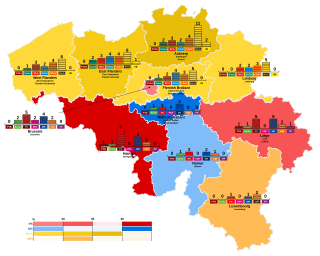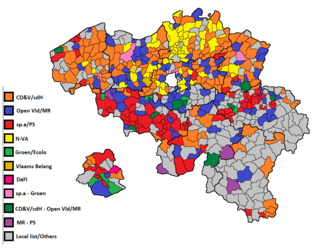Related Research Articles

Historical negationism, also called historical denialism, is falsification or distortion of the historical record. It should not be conflated with historical revisionism, a broader term that extends to newly evidenced, fairly reasoned academic reinterpretations of history. In attempting to revise the past, historical negationism acts as illegitimate historical revisionism by using techniques inadmissible in proper historical discourse, such as presenting known forged documents as genuine, inventing ingenious but implausible reasons for distrusting genuine documents, attributing conclusions to books and sources that report the opposite, manipulating statistical series to support the given point of view, and deliberately mistranslating texts.
Holocaust denial is an antisemitic conspiracy theory that asserts that the Nazi genocide of Jews, known as the Holocaust, is a fabrication or exaggeration. Holocaust denial involves making one or more of the following false claims:

Robert Faurisson was a British-born French academic who became best known for Holocaust denial. Faurisson generated much controversy with a number of articles published in the Journal of Historical Review and elsewhere, and by letters to French newspapers, especially Le Monde, which contradicted the history of the Holocaust by denying the existence of gas chambers in Nazi death camps, the systematic killing of European Jews using gas during the Second World War, and the authenticity of The Diary of Anne Frank. After the passing of the Gayssot Act against Holocaust denial in 1990, Faurisson was prosecuted and fined, and in 1991 he was dismissed from his academic post.

Vlaams Belang is a Flemish nationalist, and right-wing populist political party in the Flemish Region and Brussels Capital Region of Belgium. It is widely considered to be on the political far-right, although it self-describes as centre right.

Hans Van Themsche is a Belgian student who, on 11 May, 2006, shot three people, killing two and severely injuring another, before being shot by police and incapacitated. He was sentenced to life in prison in 2008.
Karim Van Overmeire is a Flemish politician, author, city planner and member of the New Flemish Alliance party.
Roland Henri Theofiel (Roeland) Raes is a Belgian politician, a former senator for and vice president of the political party Vlaams Blok. Raes took a dr. iur. (J.D.) at Ghent University.

Between 1941 and 1945, Nazi Germany perpetrated the Holocaust: a large-scale genocidal campaign in which approximately six million European Jews were systematically murdered throughout German-occupied Europe. Since World War II, several countries have criminalised Holocaust denial—the assertion by antisemites that the genocide was a myth, fabrication or exaggeration. Currently, 17 European countries, along with Israel and Canada, have laws in place that cover Holocaust denial as a punishable offence. Many countries also have broader laws that criminalise genocide denial, including that of the Holocaust. Among the countries that have banned Holocaust denial, Russia, Austria, Germany, Hungary, Poland, and Romania have also banned Nazi symbols. Any expression of genocide justification is also a criminal offence in several countries, as is any attempt to portray Nazism in a positive light.

The Belgian Anti-Racism Law, in full, the Law of 30 July 1981 on the punishment of certain acts inspired by racism or xenophobia, is a law against hate speech and discrimination passed by the Federal Parliament of Belgium in 1981 which made certain acts motivated by racism or xenophobia illegal. It is also known as the Moureaux Law, as it was proposed to the Parliament by Justice Minister Philippe Moureaux.
Alain Guionnet is a French Holocaust denier.
Vincent Reynouard is a French Holocaust denier and proponent of neo-Nazism. He has been convicted and jailed in France under the Gayssot Act, which bars Holocaust denial.

Federal elections were held in Belgium on 25 May 2014. All 150 members of the Chamber of Representatives were elected, whereas the Senate was no longer directly elected following the 2011–2012 state reform. These were the first elections held under King Philippe's reign.

The Belgian provincial, municipal and district elections of 2018 took place on Sunday 14 October 2018. They are organised by the respective regions:
In the run up to the 2019 Belgian federal election, various organisations carry out opinion polling to gauge voting intention in Belgium. Results of such polls are displayed in this article.
In the run up to the 2024 Belgian federal election, various organisations carry out opinion polling to gauge voting intention in Belgium. The date range for these polls are from the 2019 Belgian federal election, held on 25 May, to the present day. The results of nationwide polls are usually numerically split into the three Belgian regions: Flanders, Brussels and Wallonia. Federal seat projections for the Chamber of Representatives are presented together under these regional polls. The federal election will be part of a group of elections which also include the regional elections and the European elections. Some polls might be undefined voting intentions without differentiating between the elections.

Dries Van Langenhove is a Belgian far-right political activist and former politician.
Katleen Bury is a Belgian-Flemish politician and lawyer who has been a member of the Chamber of Representatives for the Vlaams Belang party since 2019.
Marijke Elisabeth Rudolf Dillen is a Belgian politician and lawyer who serves as a member of the Chamber of Representatives for Vlaams Belang.

The Monument to the Belgian Pioneers in Congo is an allegorical monument in the Parc du Cinquantenaire/Jubelpark in Brussels, Belgium. It was designed by the sculptor Thomas Vinçotte and crafted between 1911 and 1921 to commemorate the Congo Free State. In particular, it honours the Belgian 'pioneers' (soldiers) who brought 'civilisation' to the Congo, especially through the Congo–Arab War (1892–1894) that sought to conquer present-day East Congo and end the Arab slave trade there.

Tanguy Veys is a Belgian retired politician formerly of the Vlaams Blok and then Vlaams Belang party.
References
- ↑ Act of 23 March 1995 on punishing the denial, minimisation justification or approval of the genocide perpetrated by the German National Socialist Regime during the Second World War Archived October 12, 2006, at the Wayback Machine (informal translation)
(in French) Loi tendant à réprimer la négation, la minimisation, la justification ou l'approbation du génocide commis par le régime national-socialiste allemand pendant la seconde guerre mondiale Archived 2009-03-29 at the Wayback Machine (official French text)
(in Dutch) Wet tot bestraffing van het ontkennen, minimaliseren, rechtvaardigen of goedkeuren van de genocide die tijdens de tweede wereldoorlog door het Duitse nationaal-socialistische regime is gepleegd Archived March 12, 2007, at the Wayback Machine (official Dutch text) - ↑ The text of the law sets the maximum fine at 5,000 francs. This is 125 euros. This amount is by law multiplied by 200. The real fine therefore is 2,500 EUR.
- ↑ Legislative record of the Negationism bill in Dutch Archived 2016-03-03 at the Wayback Machine and in French Archived 2013-10-29 at the Wayback Machine , by the Belgian Chamber of Representatives. Retrieved on July 4, 2007.
- ↑ "Minutes of the Plenary Session of Thursday 2 February 1995 of the Belgian Chamber of Representatives" (PDF). The Belgian Chamber of Representatives. Archived from the original (PDF) on 2007-09-30. Retrieved 2007-07-04.
- ↑ Pol Mathil, "Un colloque international faisait le point cette semaine à Bruxelles sur la «Négation de la Shoah». Du révisionnisme au négationnisme, un tout petit «pas»", Le Soir , 12 November 1998
- ↑ "Le décret Suykerbuyk ne sera jamais appliqué. Il n'y aura pas d'amnistie déguisée pour la collaboration flamande: la Cour d'arbitrage a annulé hier le décret Suykerbuyk.", Le Soir , 15 October 1999
- ↑ Voorstel van decreet van de heer Herman Suykerbuyk c.s. houdende vaststelling van de voorwaarden voor getroffenen van repressie en epuratie, en voor oorlogsslachtoffers om in aanmerking te komen voor een financiële tegemoetkoming (opschrift gewijzigd door de commissie : … houdende bijkomende bijstand aan personen die in een bestaansonzekere toestand verkeren ten gevolge van oorlogsomstandigheden, repressie en epuratie) [ permanent dead link ]
- ↑ World Jewish Congress and Anti-Defamation League, Anti-semitism worldwide 1999-2000, Tel Aviv University Press: p66.
- ↑ ECtHR, no. 65831/01, 24 June 2003, R. Garaudy vs. France, unpublished, cited in (in Dutch)Dirk Voorhoof, Antwerpse negationisten van “Vrij Historisch Onderzoek” veroordeeld ("Antwerp negationists of "Free Historical Research" convicted"), Ghent University, October 2003.
- ↑ (in Dutch) Veroordeling voor ontkenning van holocaust Archived October 2, 2006, at the Wayback Machine ("Conviction for holocaust denial"), L.B.R., 4 May 2005, accessed on 4 September 2006.
- ↑ "Former MP given 1-year prison sentence". vrt.be. 2024-03-12. Retrieved 2024-03-16.
- ↑ (in French) Débats sur le négationnisme du génocide arménien - Belgique 2003-2005
- ↑ (in French) 29 mai 2004: des candidats et des élus du PS, du MR, du CDH et d'Ecolo dans une manifestation négationniste à Bruxelles